Upload Your CV
Send us your CV and a member of the team will be in touch to discuss open opportunities with you.
Artificial Intelligence (AI) is having an incredible impact on a variety of professions and ...

Artificial Intelligence (AI) is having an incredible impact on a variety of professions and industries. It's a recurring topic at 3Search Events, and amongst our communities. A key theme shared between all these discussions is content creation. Content appears to sit at the heart of this digital transformation.
We have discussed this topic at length with industry leaders in the digital and marketing spaces. In this blog, we combine these conversations and insights to reveal how AI is reshaping content creation.
Bill Gates famously coined the phrase, "Content is king", in 1996 and since then, the demand for content has continued to grow. We are consuming more blog posts, social media posts and video content than ever before!
The impact? Businesses have struggled to keep up with demand. The solution? Appeared with the creation of ChatGPT.
We're still in the early stages of business adoption of AI. Most organisations are using tools to automate small, repetitive but time-consuming tasks. The rise of ChatGPT and Bard has presented new opportunities for businesses wanting to scale their operations with limited resources.
According to to our Annual Pay & Hiring Survey, 55% of individuals are currently using artificial intelligence in their roles. The majority of them are using free OpenAI tools, suggesting that organisations haven't invested in artificial intelligence just yet.
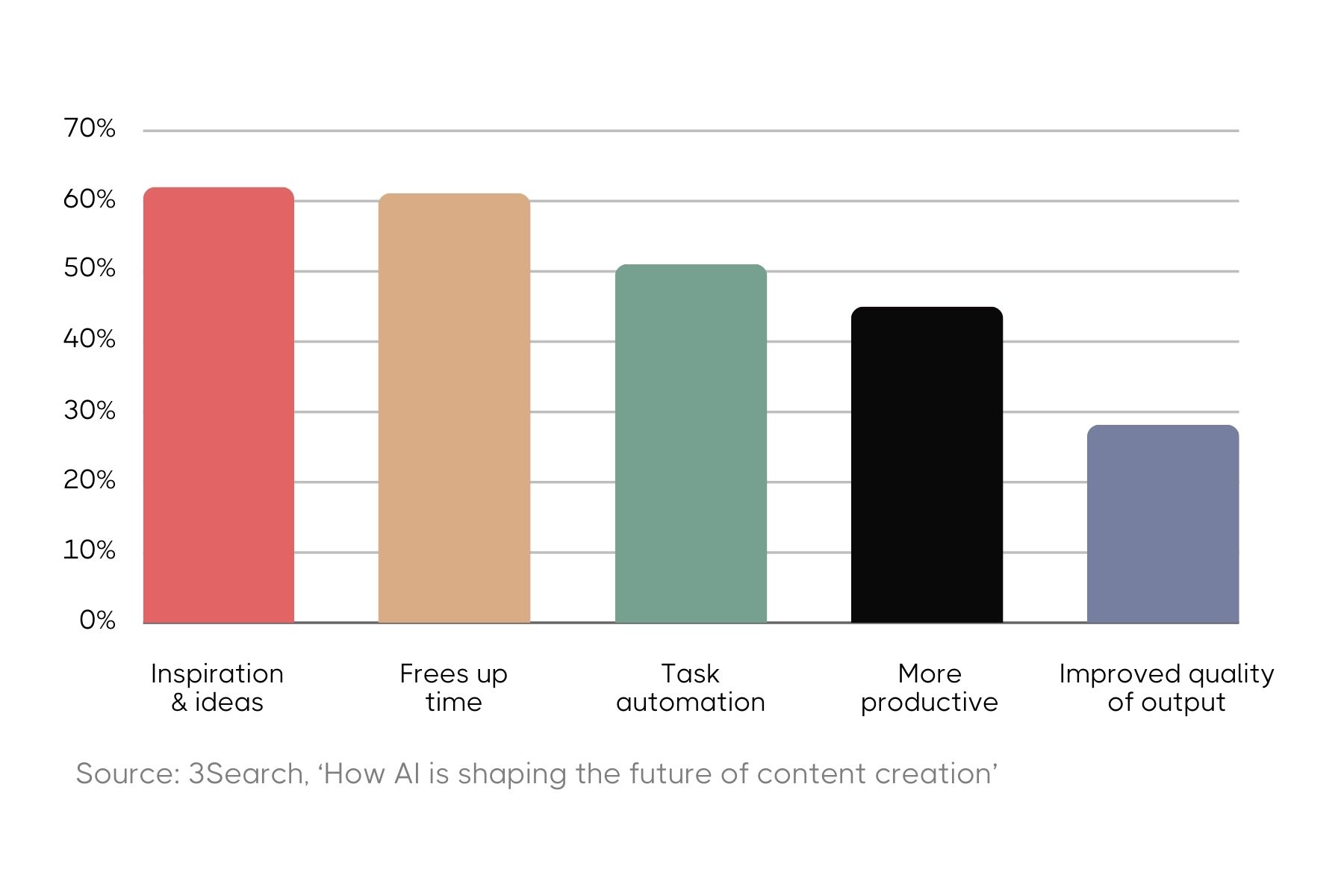
So, how are companies using AI? The answer to this question largely depends on the legacy and size of an organisation. In our recent webinar, Markus Hutchins, Brand and Insights Director at IBM shared that there is a real pressure for global organisations to be seen as leaders in AI. This is difficult to achieve, however, as there comes a lot more risk management with such a global enterprise's reputation.
On the other hand, "the smaller medium-sized businesses may not have the same legal exposure risk from a brand perspective that somebody like a Target or an IBM has." Rather, they're able to ideate, produce and distribute AI-generated content much more quickly.
AI tools significantly speed up content production. From research through to distribution, each stage is more efficient with artificial intelligence.
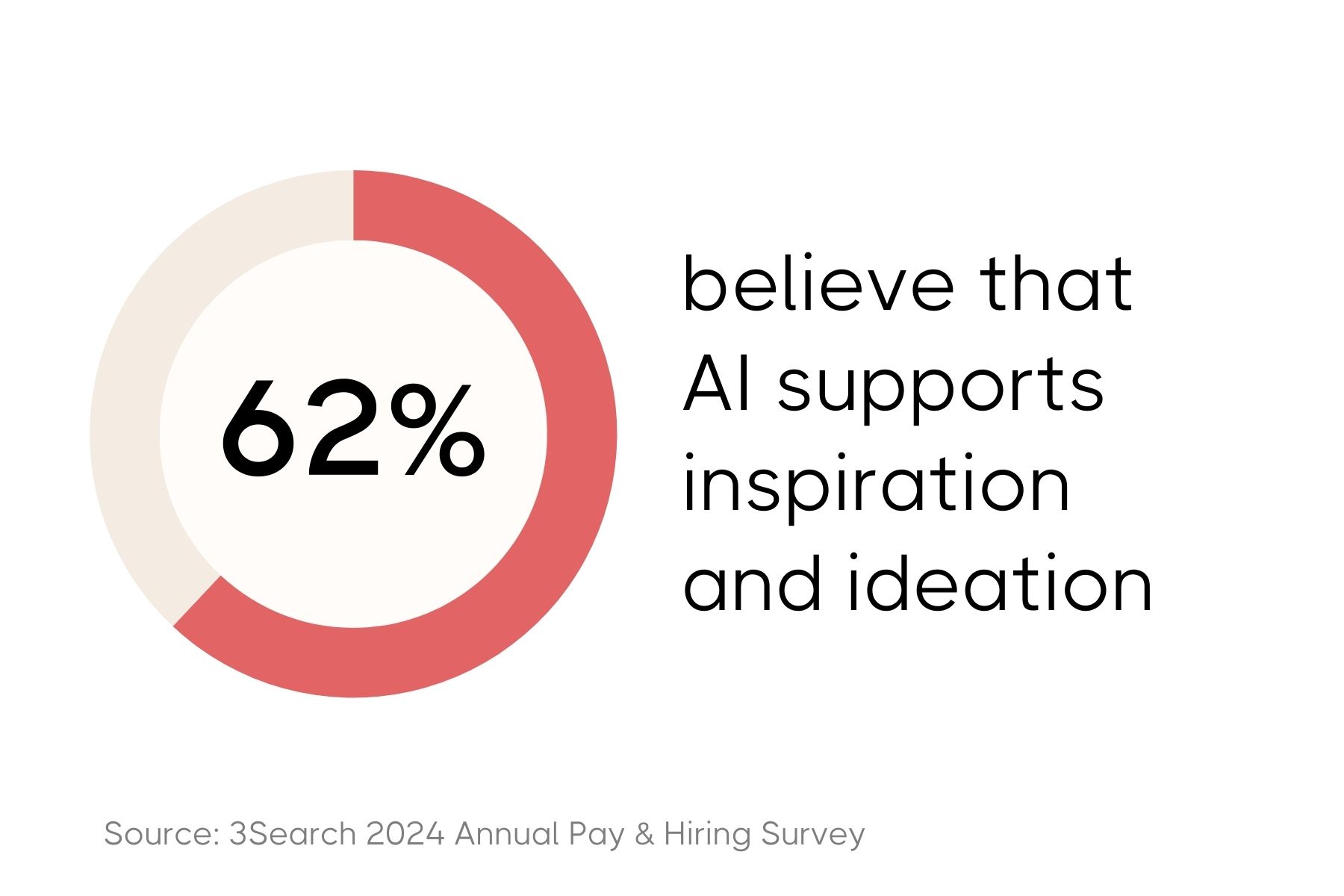
Currently, the main benefit of AI lies within the research and ideation phase. Earlier adopters of AI are using it to support with the creation of first drafts. In our recent webinar, Sean Williams, CEO of AutogenAI, emphasises how AI can enhance productivity: "What artificial intelligence is very good at is coming up with ideas quickly."
AutogenAI is just one example of an AI model that can filter through case studies, white papers and adverts for relevant information. Another is AdScan AI, a tool that aids marketers by analysing competitors' adverts to determine which are most effective. Co-creator, Raphael Yarish, demonstrated the tool for us at a recent webinar.
These tools are having a powerful impact on productivity rates. The ability to filter through large quantities of data allows professionals to draw inspiration from successful campaigns quickly and efficiently.
AI tools are automating the research process, removing the need for content creators to spend time on less valuable tasks. The rapid ideation allows content creators to produce first drafts and/or new concepts much faster than before. Teams can then re-focus on what matters - creative content that really sells your products and services.
Some business leaders might need educating on the best ways to use AI in content creation. In discussions we're having, some content marketers are sharing that they're being told to focus on quantity over quality.
It's clear that AI is creating the opportunity for content quality to improve. However, businesses need to create a strategy that allows teams to take advantage of this technology. For example, at our roundtable exploring the future of marketing in technology businesses, marketers shared that they're experiencing pressure from internal stakeholders to produce hundreds more pieces of content.
While AI excels at speeding up the creative process, many question the impact it will have on quality. On one hand, professionals have more time to focus on creating optimised content. On the other, there is potential for the production of more poor-quality content as demand rises.
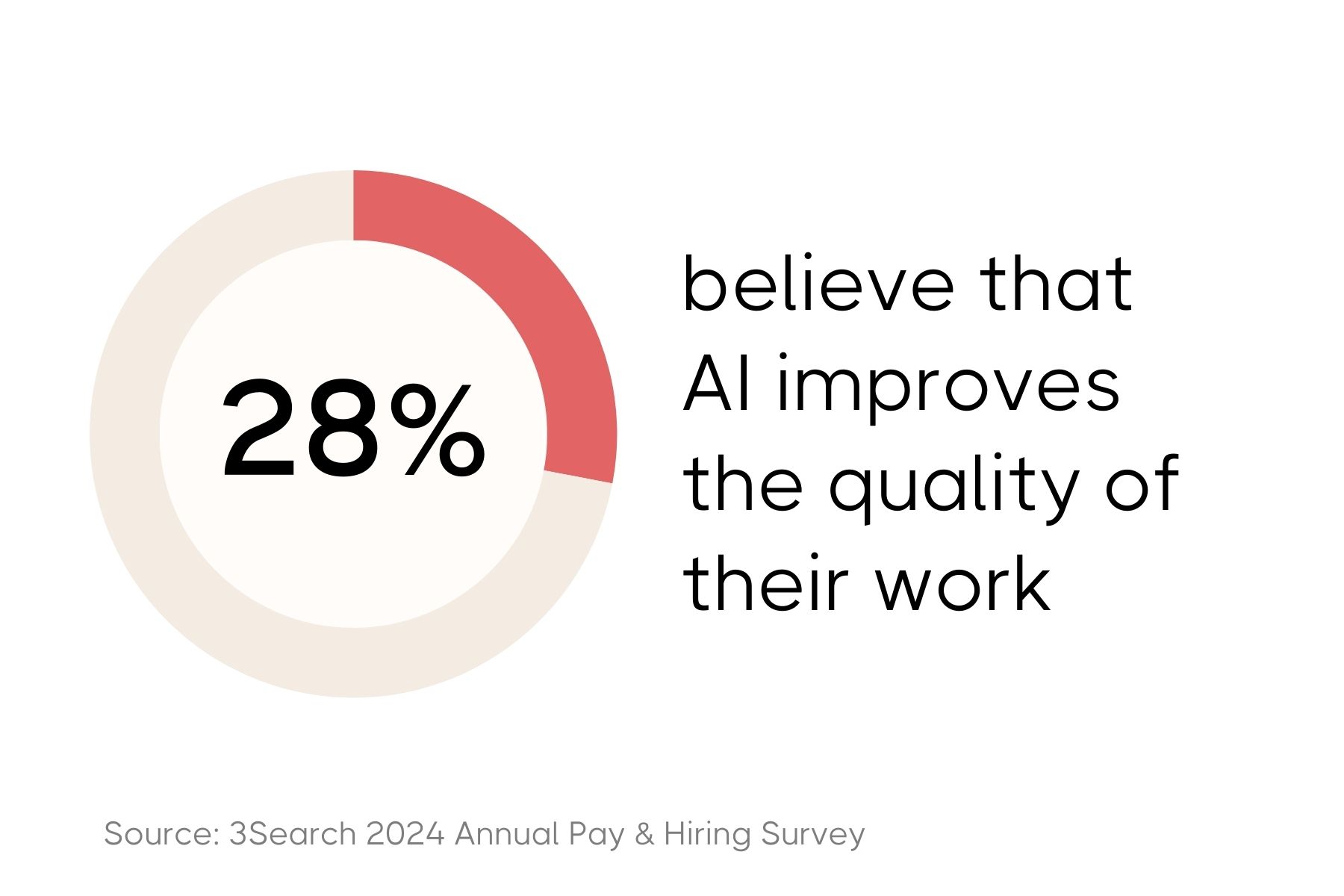
In a world where millions of pieces of content are at your finger tips, it's important to question what makes yours different.
Leading customer marketer, Michael Migliore, warns against the use of Generative AI (GenAI) to increase content production. As a CRM professional, Michael highlighted the issue of sharing more content that doesn't deliver value to customers.
Content Leaders agreed with this sentiment at our event exploring the evolution of content marketing. As AI tools accelerate content production, there is a growing concern over content fatigue. With every brand esentially becoming its own media publisher, consumers are overwhelmed with content. To address these challenges, it is essential to emphasise the production of authentic and valuable content.
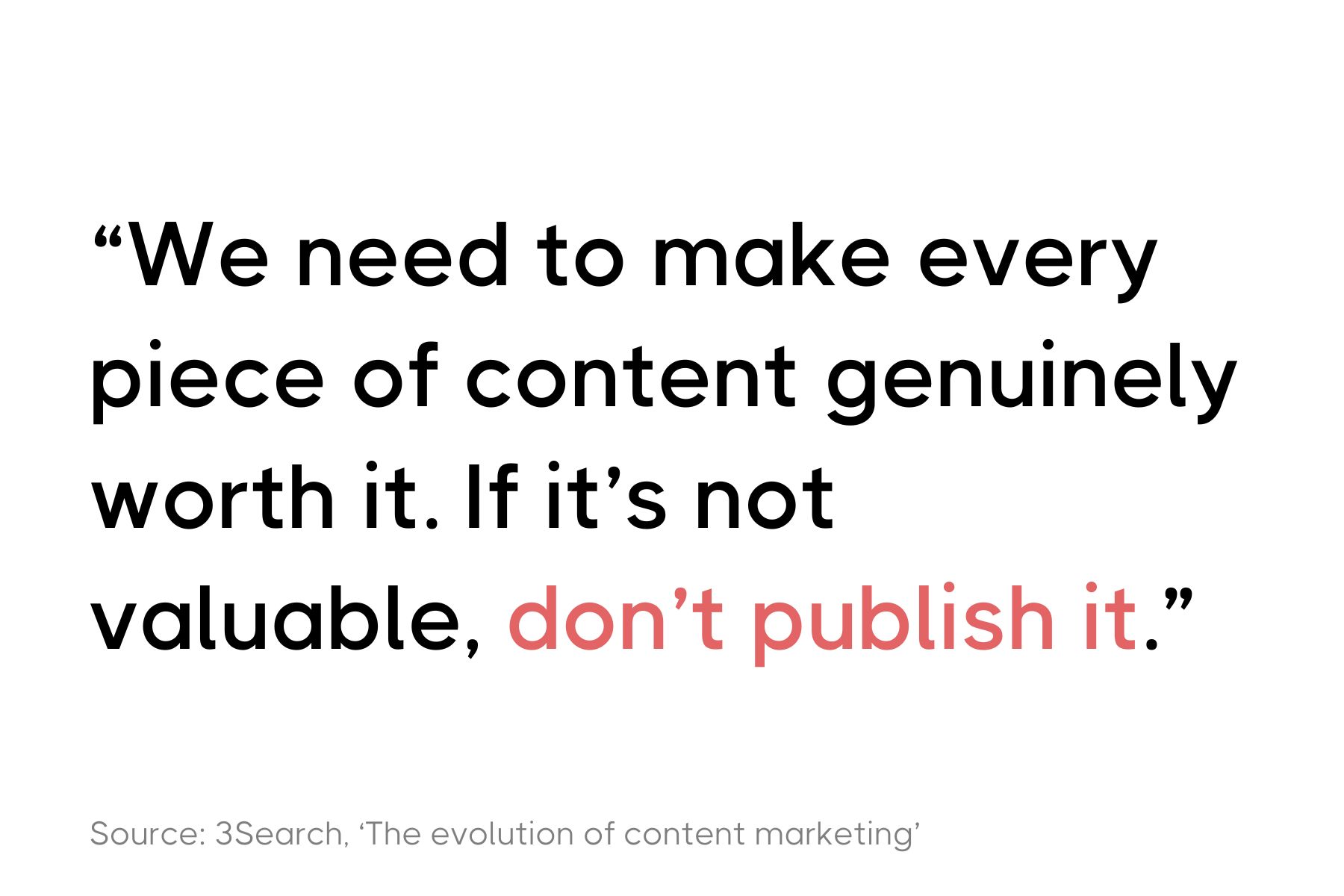
This aligns with recent shifts in search engine algorithms. While social media platforms and Google do not discriminate against AI-produced content, they will always rank high-quality content first. As a result, marketers should always create a content marketing strategy that focuses on value. To do this, they will need to manage stakeholder expectations and educate them on the kind of content to focus on.
AI content creation still requires a human touch to be successful. Sean Williams shared that while AI excels at generating ideas rapidly, “What it doesn't have is judgment.” The tools currently do not have the ability to effectively replicate a brand's tone of voice. Content marketers currently describe AI's tone of voice as "immature, overly formal or lacking emotion."
If we don't combine human creativity with AI efficiency, there's a real risk that brand voices will all sound the same. This will only hinder marketing success - a topic explored at length in our event about 'The future of CRM'. Here, our speakers placed emphasis on maintaining a brand’s unique voice in all customer communications to ensure strong engagement and retention.
Despite the advantages, the integration of AI into content creation isn't without its challenges. Many question whether or not we can trust artificial intelligence to produce factual content, while protecting your intellectual property.
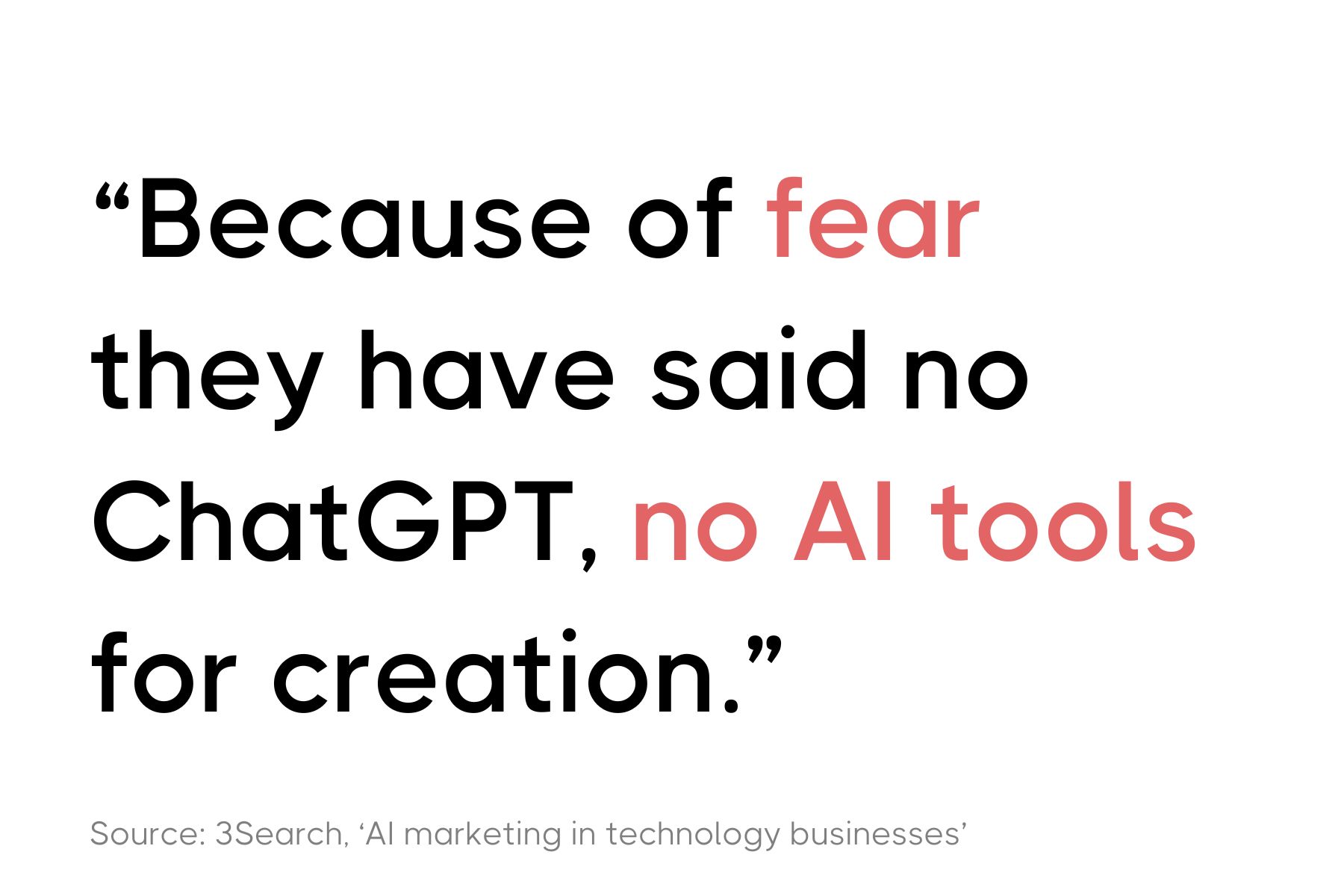
Many businesses are reluctant to adopt artificial intelligence into their organisation because of concerns around data protection.
As discussed in our webinar, 'How is AI transforming the bids & proposals profession?', Sean Williams, CEO of AutogenAI, warned against the use of publicly available AI, like ChatGPT. These tools create potential risks surrounding business security.
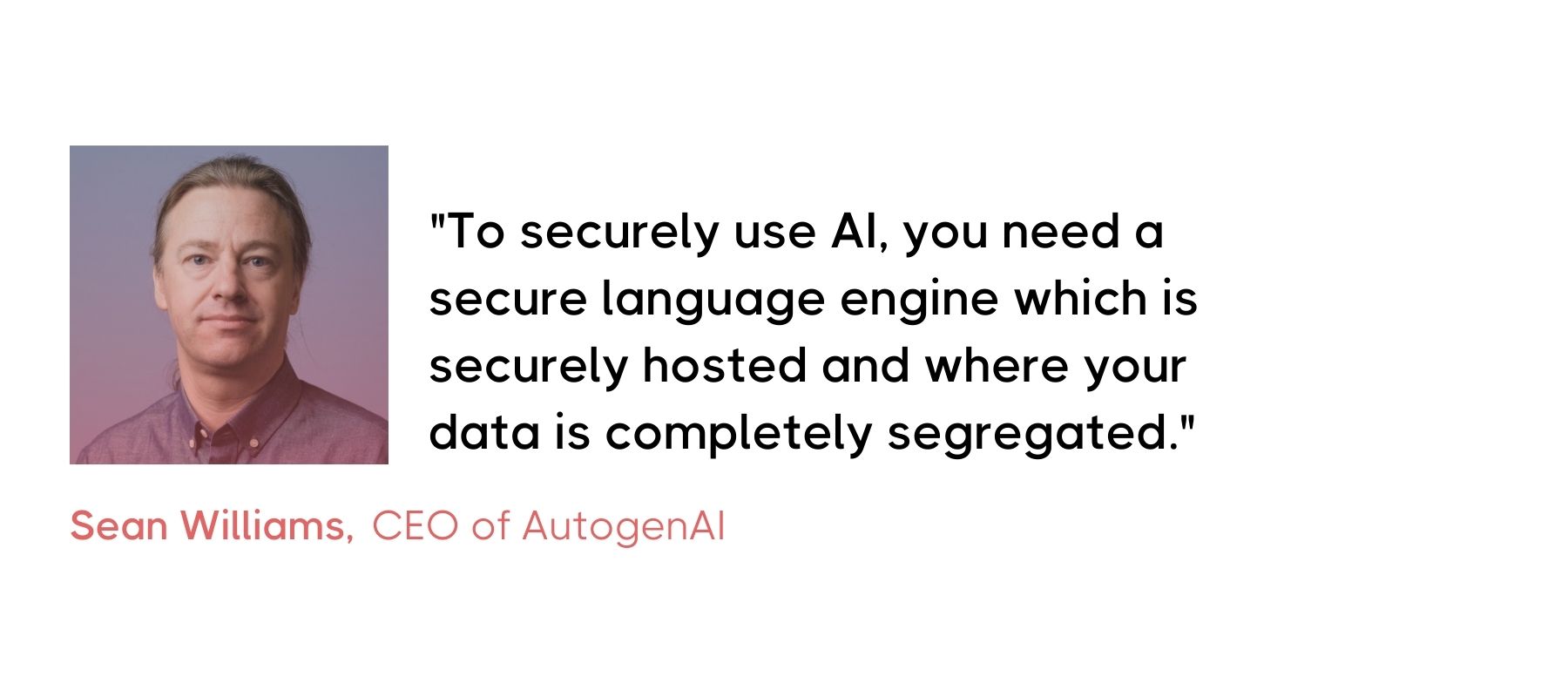
Companies can protect sensitive information by only using data for training their own language engines. This is an option that businesses are beginning to adopt. At our roundtable discussing 'The outlook of communications teams in 2024', one attendee shared how they're actively implementing AI across their company. Their business is developing their own AI tool, which means they protect their data and own the content produced.
Another concern expressed by business leaders is how AI tools will impact consumer trust.
The risk of fake news has only increased with the advances in AI. So, it's no surprise that Forbes research shows that "76% of consumers are concerned about misinformation from artificial intelligence (AI) tools". Communications leaders predict that people will only continue to question the authenticity of content.
As a result, businesses are actively exploring solutions to this challenge. For instance, one technology marketing leader shared that, “Part of [their] messaging is a data nutrition label." By being open about the use of AI and sharing data sources, companies increase consumer trust and educate readers. This method builds trust and maintains the value of content.
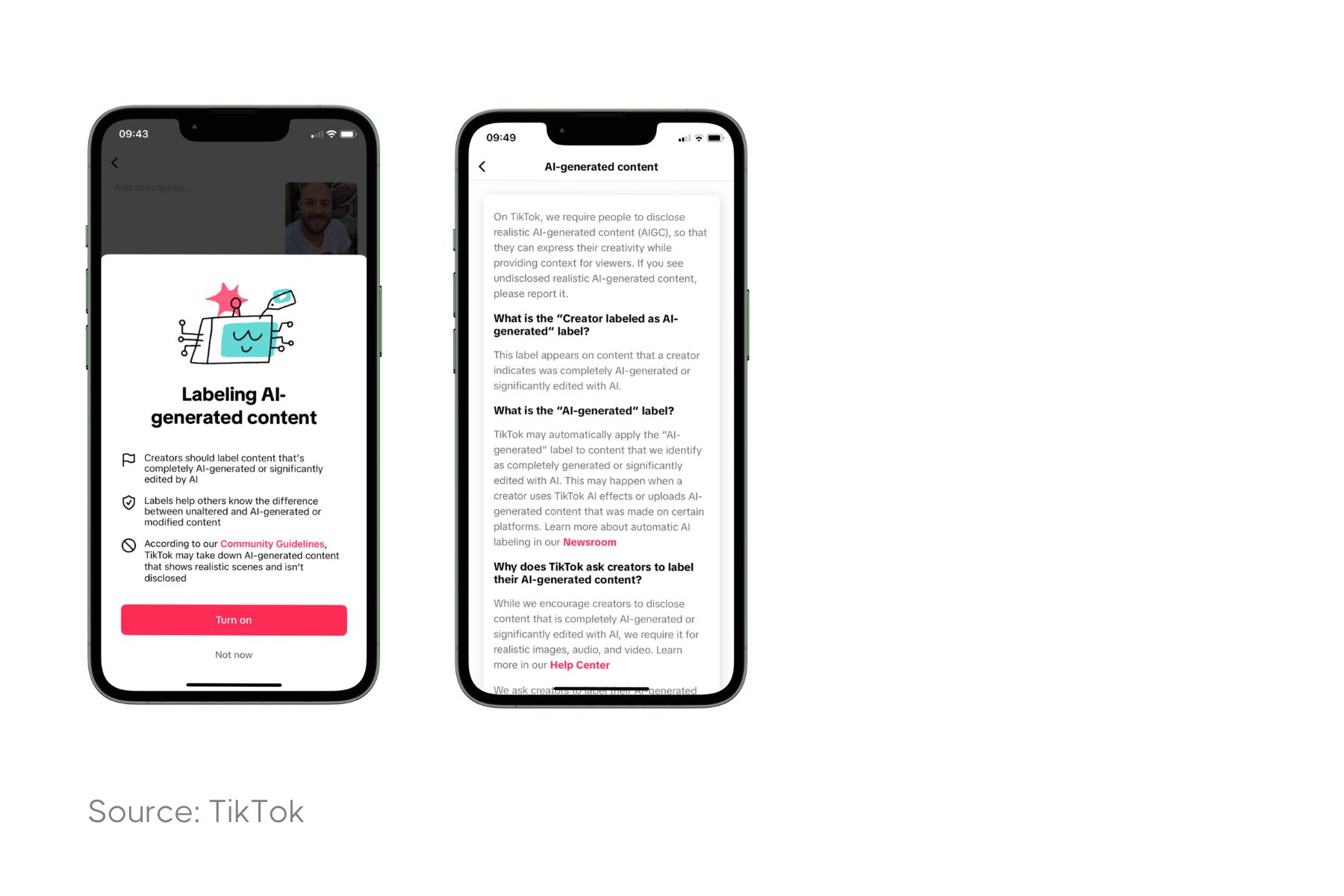
Consumers will likely soon expect to see these AI warning labels when consuming content. Large corporations and social media platforms are already implementing AI notices. Plus, the likes of The Data Nutrition Project are interrogating datasets to create healthier data-led decisions.
It's undeniable that AI is the future of content creation. Many marketers advise businesses to introduce AI systems now so they do not get left behind in this technological revolution.
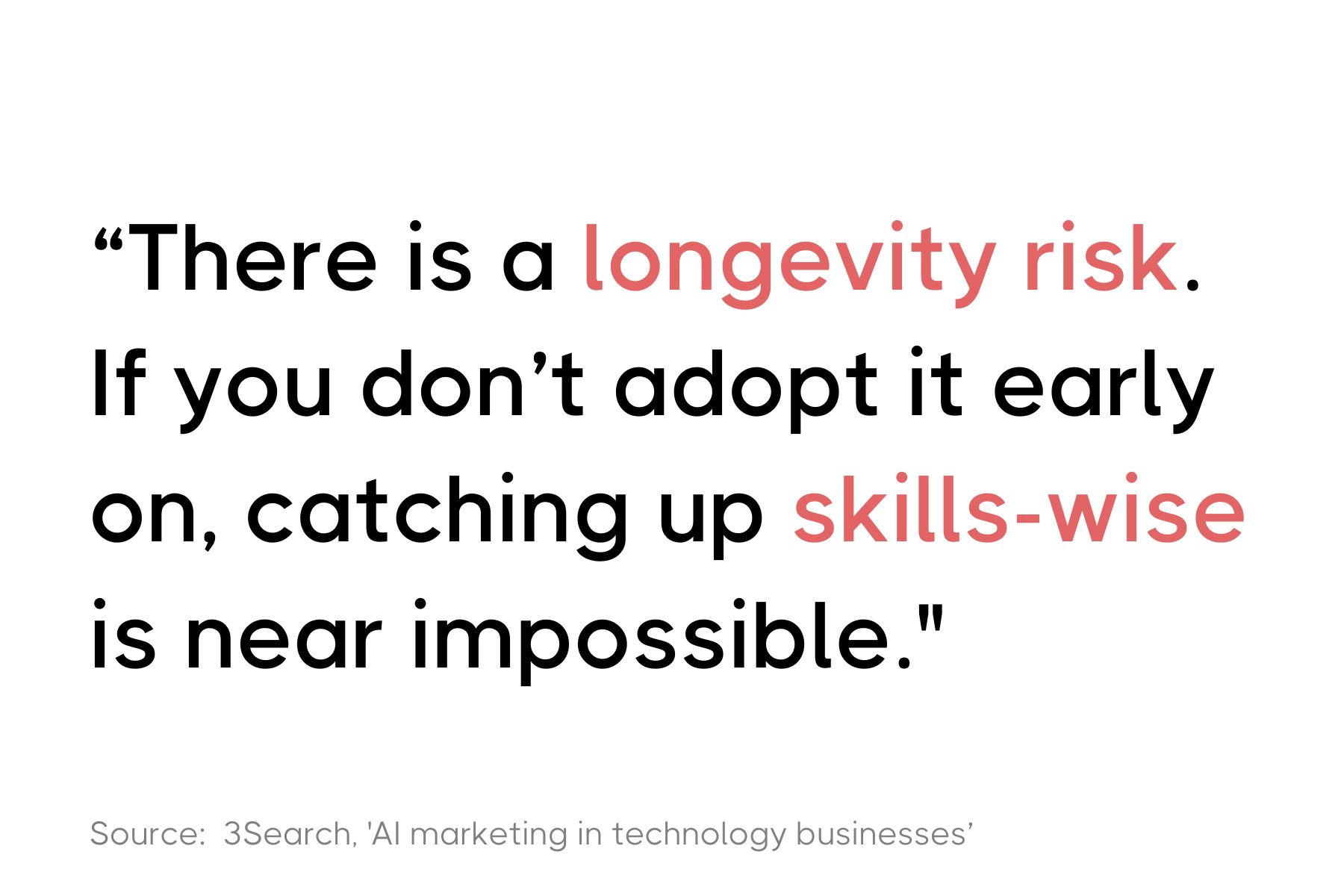
Hiring managers aren't necessarily looking for AI skills right now. At the start of the year, Oliver Eliel, Director of Product Design at Bumble shared, "I think we're too soon to start looking for the AI skill set," at our webinar exploring the future of digital design.
But what does the future look like for content marketing jobs? With so much still unknown about the future of AI, we don't have all the answers, but we can help guide you in the right direction.
The current challenge for businesses is not just about leveraging technology. Companies are also needing to ensure they have the right talent in place to introduce AI into their organisation. Many are still unsure on the exact skills required for effective AI use, so soft skills are just as crucial in this environment.
Sumeet Vermani, Chief Marketing Officer and Consultant, emphasises the importance of adaptability and a growth mindset in your hires.
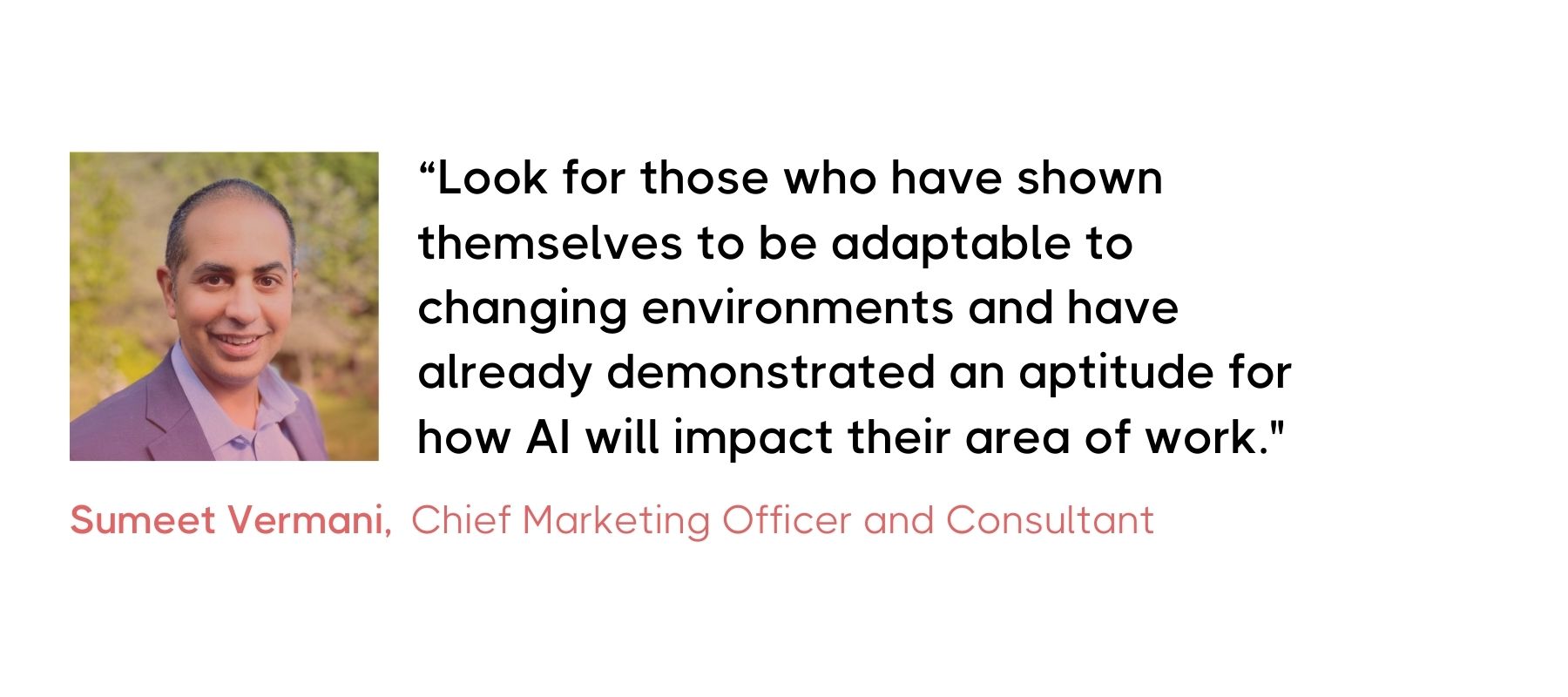
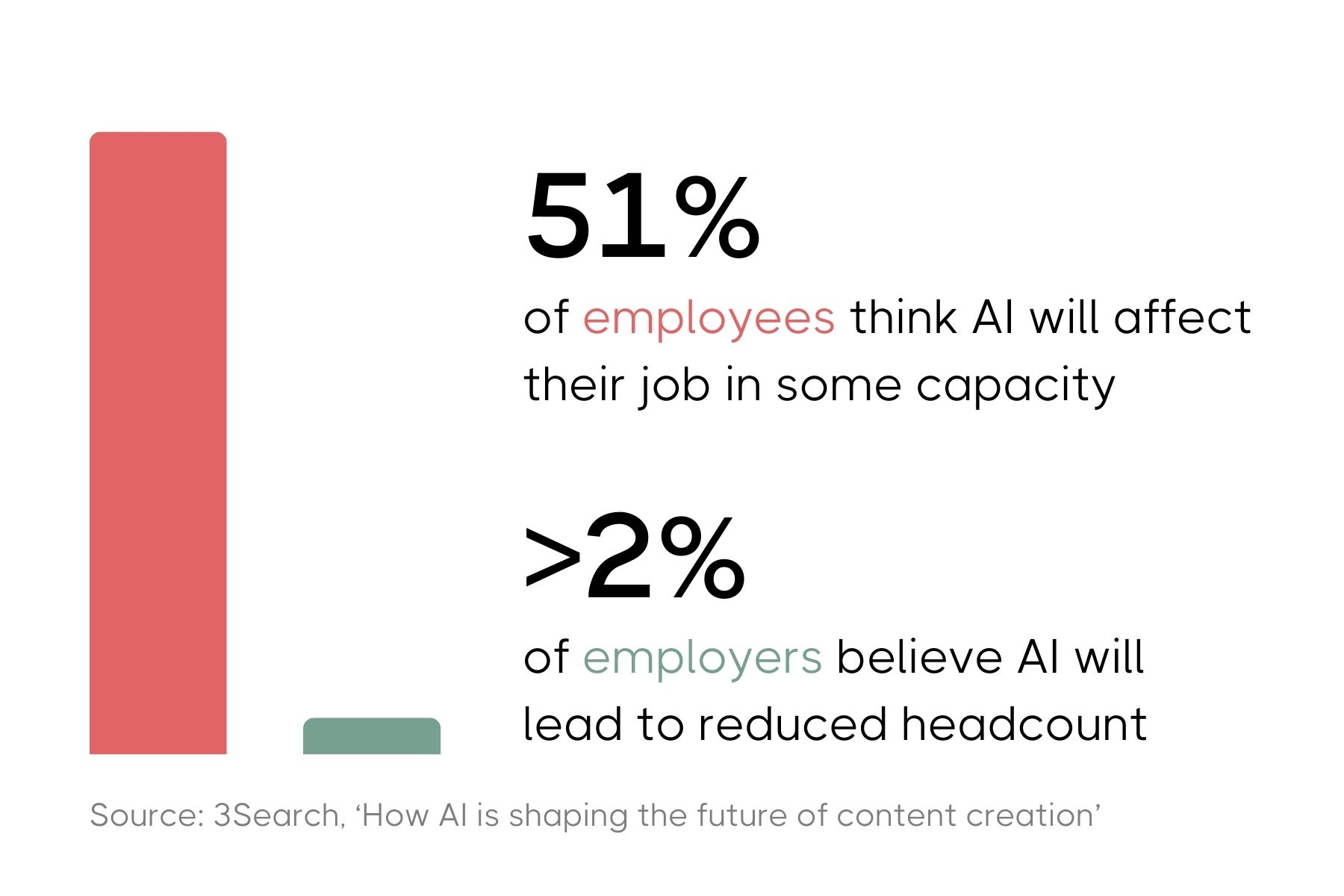
Many discussions around AI have concluded with the human impact, with many sharing concerns about the future workforce. Our Annual Pay & Hiring Survey found that 51% of employees think AI will affect their job in some capacity in 2024. However, less than 2% of employers believe that AI will lead to a reduction in headcount. This demonstrates that businesses largely view AI as a tool to enhance human capability - not replace it.
If your employees feel threatened by AI, you should focus on communicating the opportunities that AI creates. This should remove any human implications.
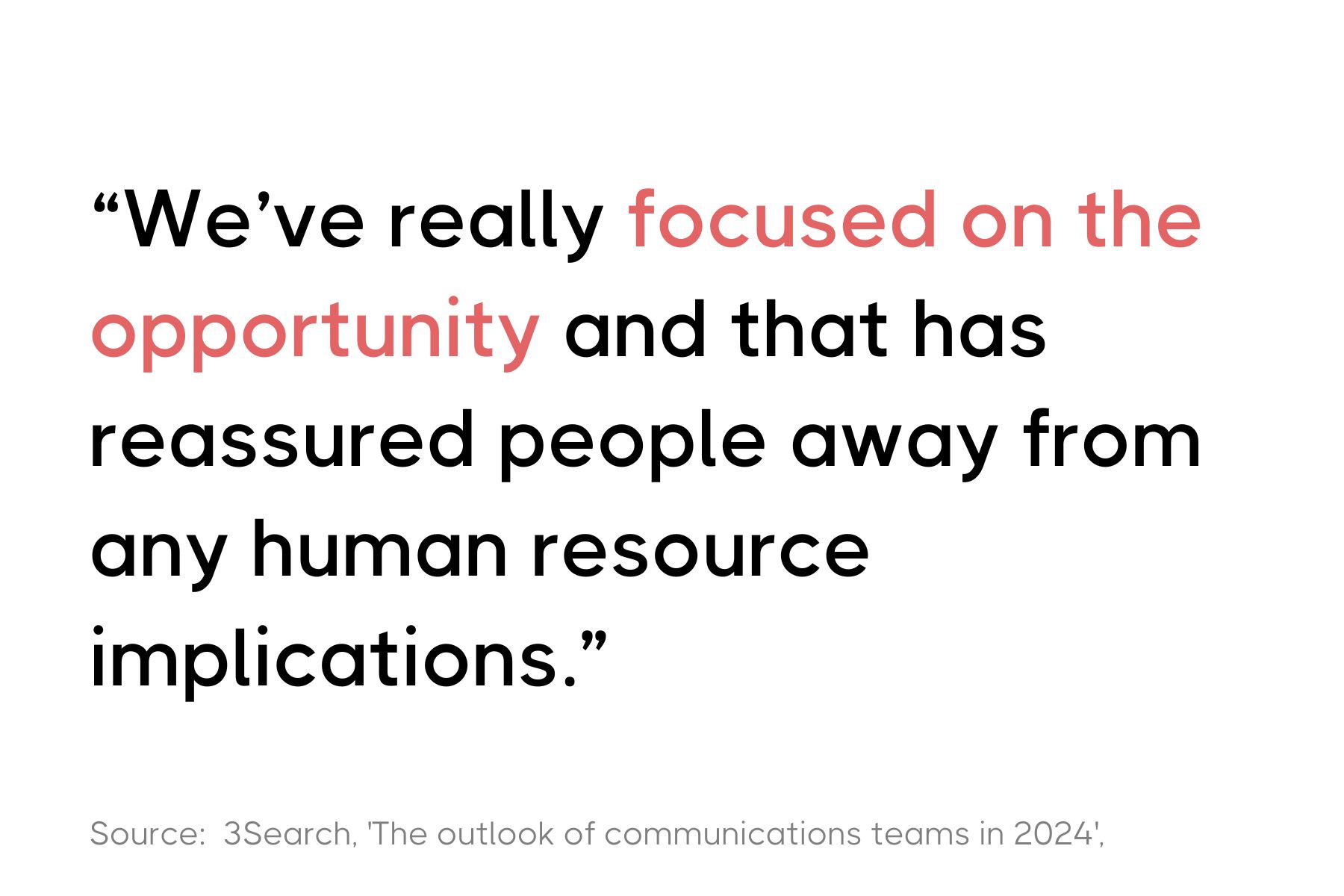
While artificial intelligence doesn't threaten human employees, there is a clear need for job descriptions to evolve, especially at a more junior level. Many are concerened about the younger generation entering the workforce for the first time, as AI tools are undertaking basic tasks that are usually associated with entry-level roles.
Training must evolve to future-proof the younger generation’s careers. It's time to move away from the mundane, administrative tasks and giving them the opportunity to upskill in these new technologies. Some marketing leaders have revealed that their team is already changing to accommodate AI. They are re-structuring and upskilling to use the technology efficiently.
Ultimately, AI shouldn't be seen as a threat, but an exciting opportunity. Ritchie Mehta, Founder and Advisor of School of Marketing, thinks that AI offers an exciting opportunity for people starting their careers.
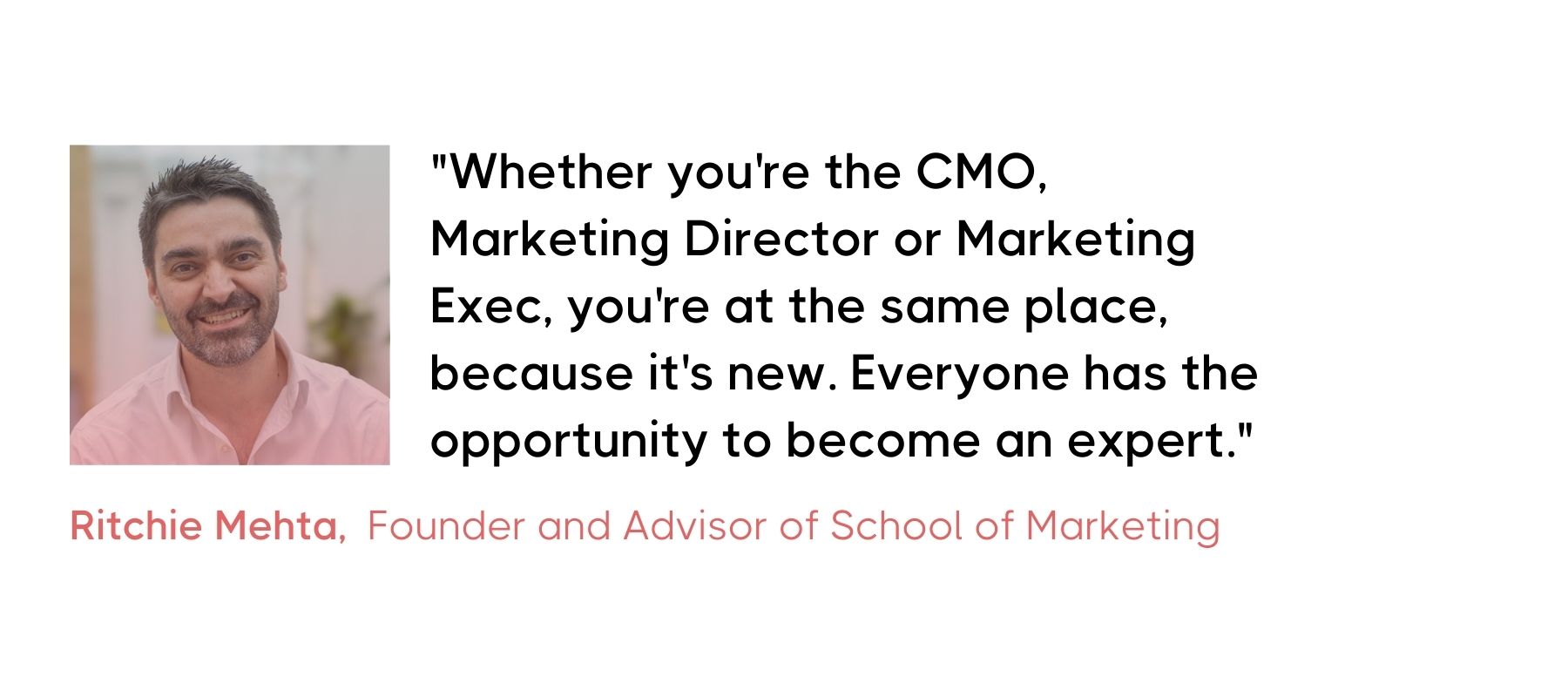
As AI continues to evolve, its impact on marketing strategies and consumer behaviors will evolve with it. While current adoption rates of tools like ChatGPT among the general public are still low, there's significant potential for growth.
As mentioned above, it's incredibly important for brands to start using artificial intelligence now to avoid being left behind. Dylan Viner, Chief Strategy Officer at TRIPTK, suggested that brands should focus on "experimenting and piloting" AI now, and be comforted by the knowledge that it won't look or behave the same in a few years time.
| Not sure which marketing AI tools you should be using? Find out in our blog that reveals the tools that leading marketers recomend.
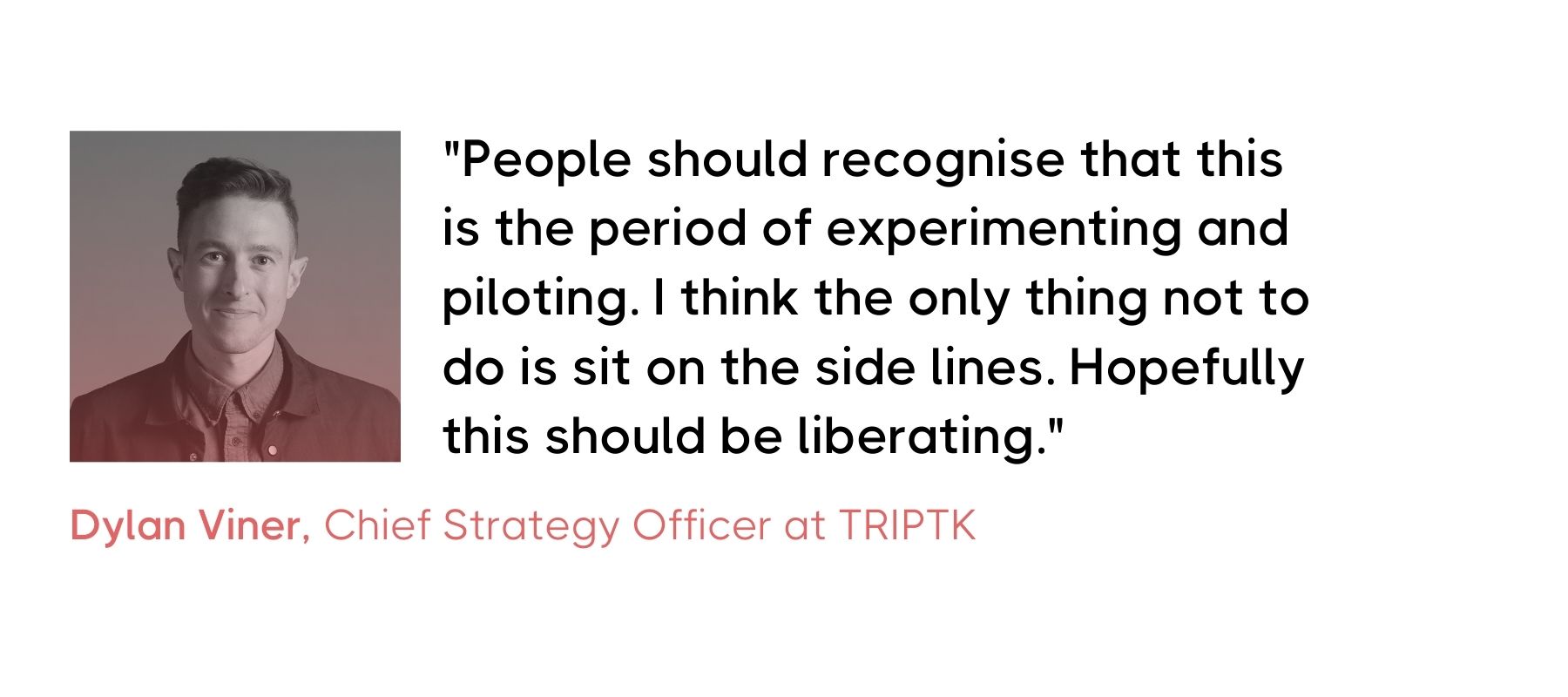
With businesses actively exploring and investing in their own tools, we expect a shift towards more sophisticated and integrated AI in the near future.
The commercialisation of AI is already changing content consumption. For instance, AI search engines are changing how users interact with information, interpreting and distilling content for them. To ensure their content remains engaging and relevant in an AI-dominated landscape, brands need to find innovative ways to connect directly with their audiences.
Dylan shared more of his predictions for the future of AI in our webinar, 'The impact of AI on brand marketing'. In the same way that 'artisinal' was created in response to mass industrialisation, he suggested that human interaction will soon be seen as a luxury. Dylan shared, "Businesses will need to consider when and where to prioritise human to human interaction, they'll probably come at a premium. They might even come to be seen as a luxury."
It's undeniable that AI is having a lasting impact on the world of content. From bid writing through to digital marketing, the way we produce content is continuing to evolve. As specialist content recruiters, we're continuing to have discussions with leading marketers across a variety of industries about how they're embracing AI. Stay up to date with these developments with our AI content hub.